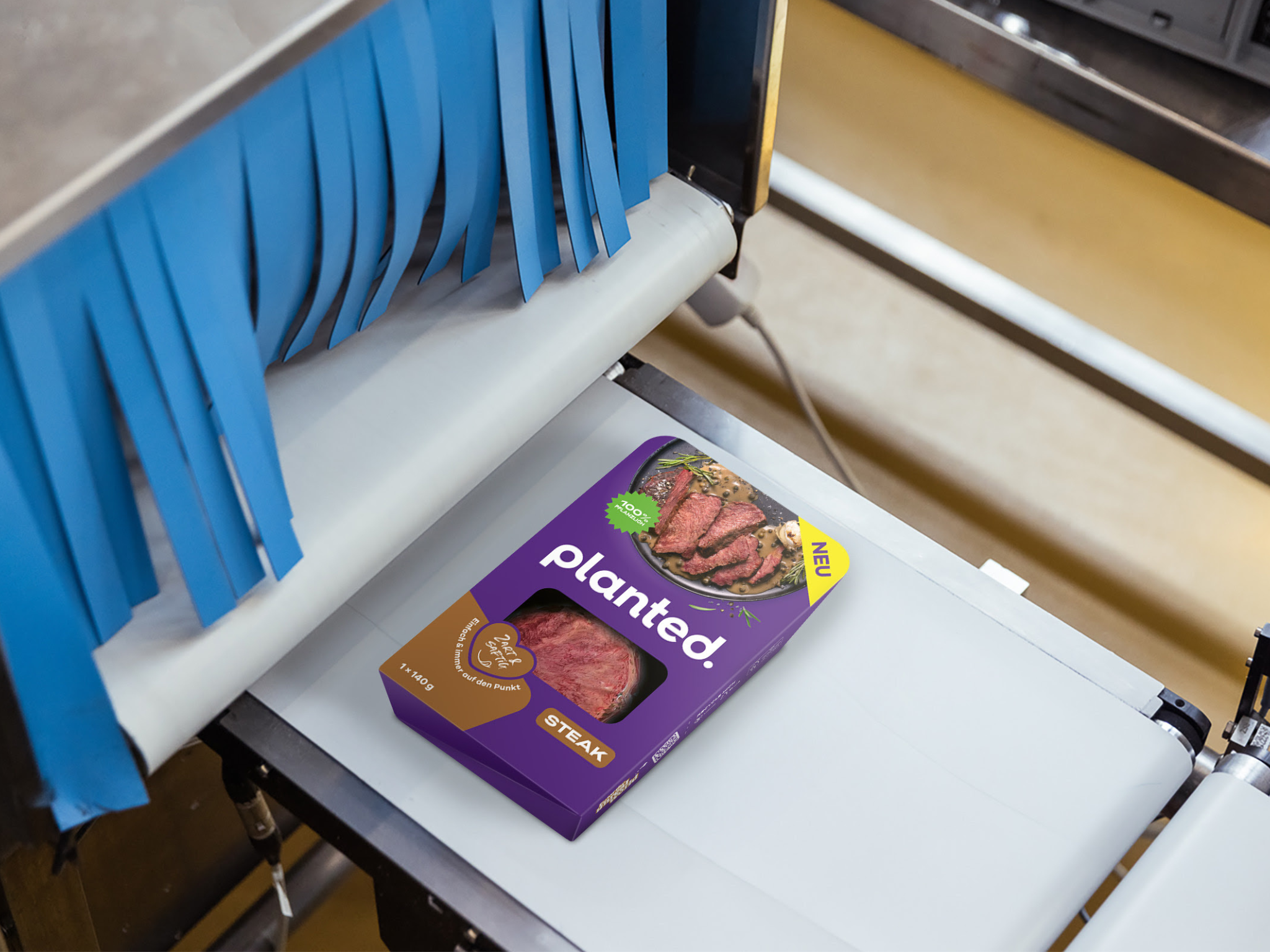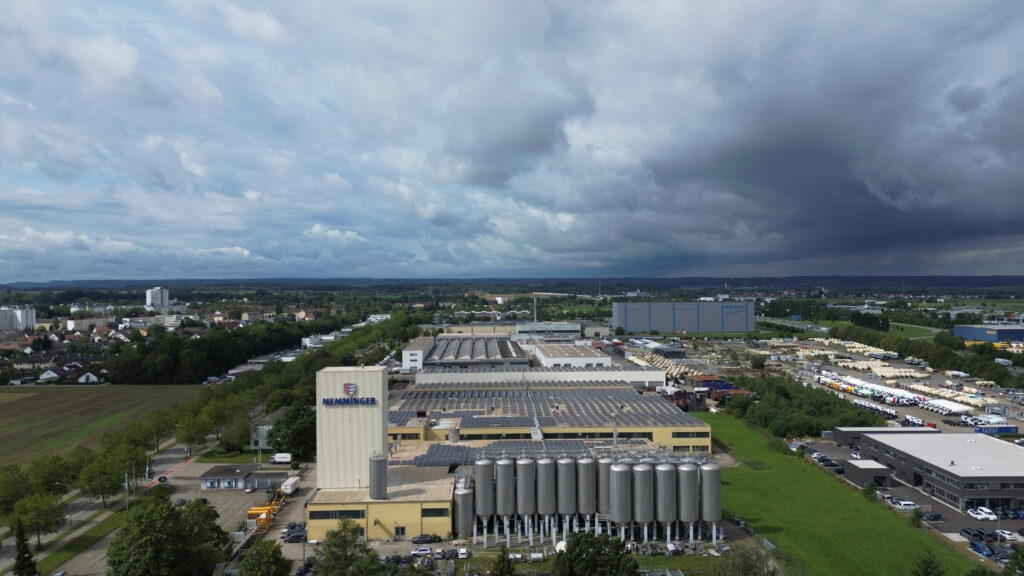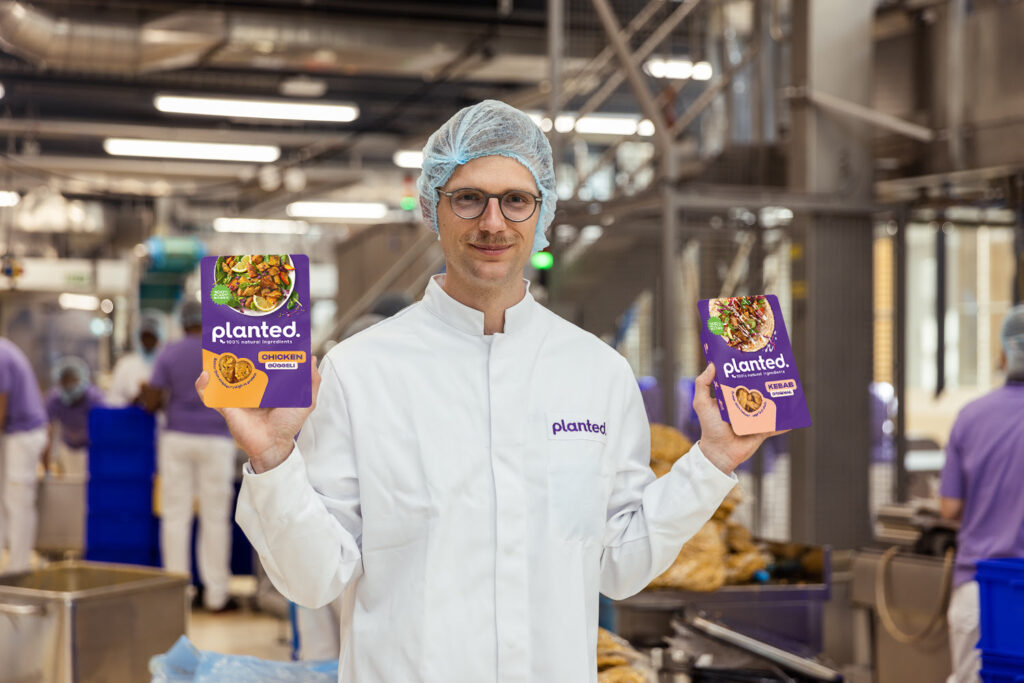
Swiss meat analogue maker Planted will open its second manufacturing facility in Germany, Europe’s leading market for vegan food.
Planted, the Switzerland-based producer of meat analogues, has announced plans to open a new factory in Germany, its main market for exports.
The company, which recently unveiled a fermentation-derived whole-cut steak, already has a plant at its headquarters in Kemptthal, Switzerland. For the second site, it is reviving an old brewery in Memmingen, Bavaria to create a modern production hub for vegan meat.
The new facility is expected to begin production by the first quarter of 2025. At full capacity, it would be able to produce 20 tonnes of meat analogues every day, and around 5,000 tonnes annually. The facility in Germany – which accounts for 75% of Planted’s exports from Kemptthal – is set to create over 50 obs, adding to its 200-strong staff.
“Our international expansion follows the strategic decision to bolster our biotechnological expertise and locations abroad, closer to our consumers,” said Planted co-founder Lukas Böni.
Planted powered by a new whole-muscle platform

In April, Planted released its whole-cut steak, which has since made its way into restaurants and retailers in various countries, including Switzerland and Germany.
This is the first product resulting from its whole-muscle innovation platform, where it uses proprietary microbial fermentation processes to grow what it calls “biostructured proteins”. The startup says it’s “convinced that biostructured proteins will surpass animal meat in the future, in terms of flavour, sustainability, health, productivity and price”.
Planted began the strategic expansion of its production capacity at Kemptthal this spring via a state-of-the-art fermentation plant, and this effort will now continue at the new site in Germany.
For the Memmingen factory, Planted has partnered with green infrastructure firm Alois Müller Group. It will be entirely free of fossil fuels and “almost completely” carbon-neutral, making use of a well cooling system, regionally generated district heating from wood burning, and photovoltaics to ensure all energy at the plant comes from renewable sources.
“We are proud to be one of the few innovators of plant-based meat who covers as many steps as possible in the value chain – from research and development to industrial production,” said Böni.
“This depth of value creation allows us to develop our vision of ‘better proteins’ even more strongly and will be implemented at the new plant in Memmingen, for example, when it comes to green technology and sustainable production.”
The company noted that the Kemptthal facility will continue to “maintain its production and importance”, particularly for local consumers in Switzerland, where it is the market leader.
Planted bets on Germany’s growing appetite for plant-based meat

Planted’s whole-muscle steak is made from soy protein, rapeseed oil, bean and rice flours, and a blend of microbial cultures, and leverages a solid-state fermentation process that lasts 30 to 40 hours. It’s a departure from the high-moisture extrusion it uses to make its plant-based meat products like chicken, kebabs, duck and pulled pork.
The development of the steak was facilitated by a $2.3M injection by state-backed innovation agency Innosuisse, as part of the Swiss Accelerator Program. The company has secured $131M in total funding to date, helping it breach over 8,000 foodservice and 8,700 retail locations across Europe.
“Our goal is to quickly bring innovative products from our fermentation platform to the market – in particular the Planted steak, which currently uses our most advanced and disruptive fermentation technology in terms of scalability, flavour and product quality,” said Böni.
“The investment in the additional production site enables us to meet the rapidly growing market demand and produce even closer to our German consumers,” Böni added. In Germany, the company is one of the top 10 best-selling meat analogue makers.
The production of each Planted steak produces 97% fewer emissions and requires 81% less water per kg than conventional beef. At the new factory in Memmingen, this will bring savings equivalent to the annual emissions of half the city’s residents.
Germany is Europe’s leading vegan market in terms of sales, with the sector growing in value by 42% since 2022. In 2023, production of plant-based meat expanded by 17% from the year before amid increasing consumer demand for these analogues. A survey earlier this year revealed that 30% of Germans want to eat more plant-based meat in the next couple of years, just as meat consumption fell to record lows in 2023.
In March, Germany updated its dietary guidelines to recommend slashing meat consumption by half and making 75% of diets plant-based. Only two months later, the German Nutrition Society doubled down on this by acknowledging that veganism is a “health-promoting diet” with proper supplementation.
Moreover, Germany’s government allocated €38M in its 2024 budget to promote alternative protein consumption and a switch to plant-based farming, as well as open a Proteins of the Future centre.
The post For Its New Factory, Planted Zeroes in On Germany’s Leading Plant-Based Market appeared first on Green Queen.
This post was originally published on Green Queen.